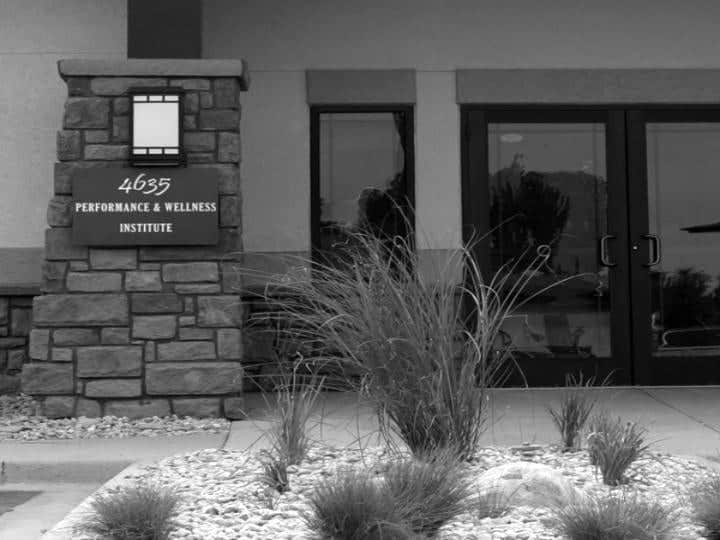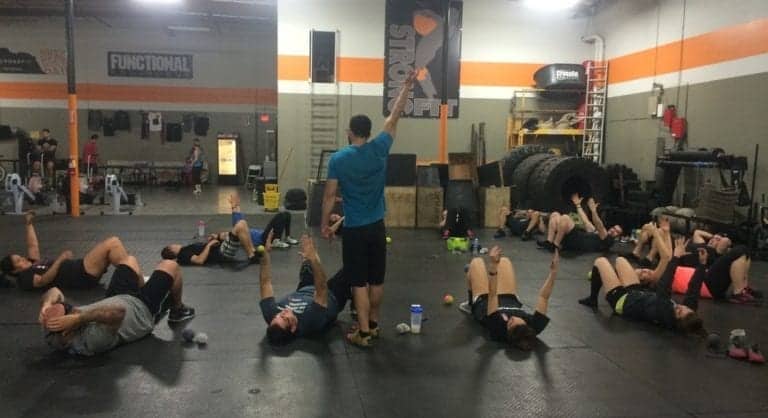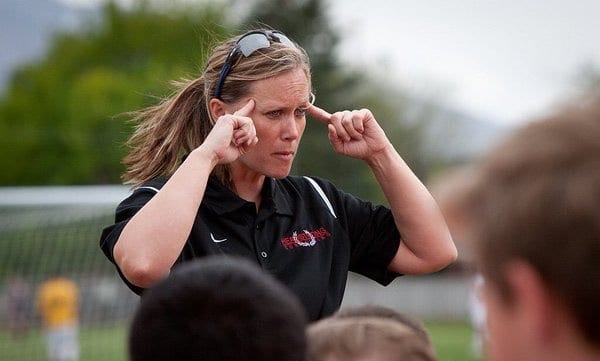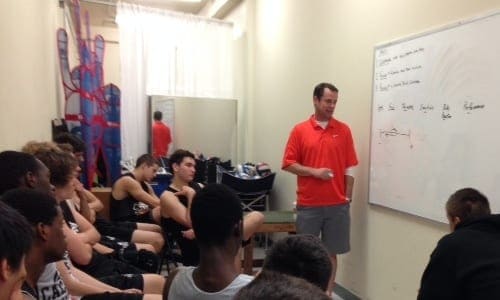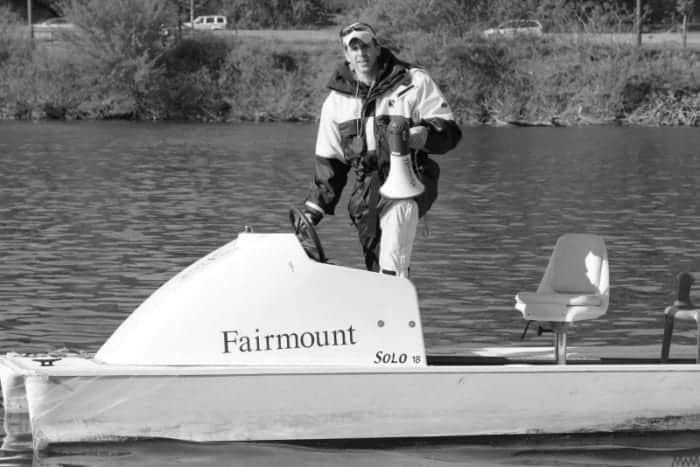How the very best Exercise Physiologists drive performance might surprise you
On a daily basis, the Performance and Wellness Institute is buzzing with athletes practicing their verticals, leaping between stations, pushing their strength towards numbers that were previously unimaginable, while rehabbers are moving with increasing degrees and fluidity. But this isn’t what distinguishes the Institute, enter Crisa Renard and Ryan Wasilawski, these two Exercise Physiologists and their investment in every individual is what’s behind the success stories that clients are quick to share.
Crisa, also the practice General Manager, specializes in rehab, orthopedics to be specific and Ryan, Director of Athletic Development, guides, develops and inspires high school and college students to make the next level and reach their goals, whether that’s winning championships, competing in a higher division or winning that scholarship.
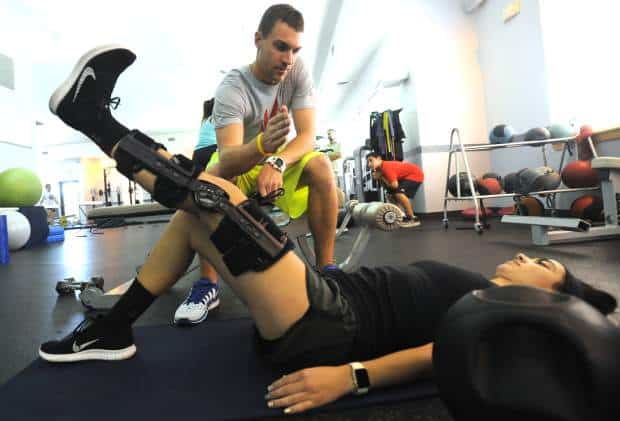
But how do they do it? How do they get their clients to keep striving and keep challenging themselves to better their best?
Ryan says, “I think the importance of connecting to these athletes on a personal level is immeasurable. If the athlete can see how much they mean to you, that you’re invested in them as a person, they’ll run through a brick wall for you. They’ll train harder, they’ll show up every day, and they’ll get better. That’s what it’s about and being invested in each athlete is the foundation for that.”
He adds, “I care about these athletes like they’re my family, and when they do well, I feel like I have been successful. People see me at games and competitions and appreciate my investment in their kids.”
As the Performance and Wellness Institute’s General Manager, Crisa makes sure this wholistic approach envelops EVERY client. The Performance and Wellness Institute values the complete wellbeing of everyone on its list. The minimum qualification to work with the Institute’s clients is a Bachelor of Science degree, and every client undergoes an orthopedic assessment as part of the program development process. The assessment ensures that their performance gains are not coupled with long-term joint issues.
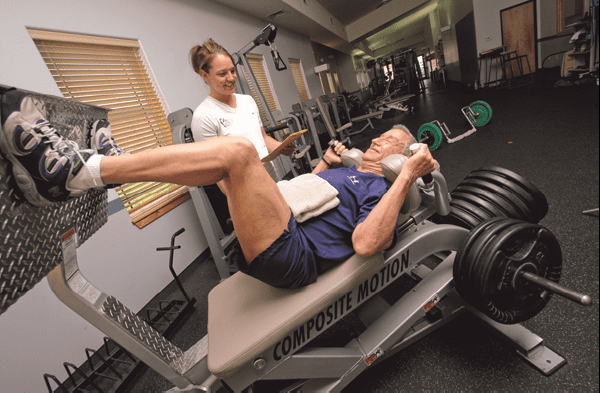
Crisa describes the process explaining that as well as a “fairly extensive evaluation for range of motion, flexibility, strength/weakness, body fat… we sit down with each person to find out what their goals are and what our goals are for them. We want to know basically everything about them to allow us to make the best programs for them as individuals so they can be successful.”
That covers the “what”, but of equal importance to Crisa and Ryan is the “how”.
In addition to the specifics of their clients’ goals and the physical parameters of their programs, Crisa and Ryan want to know “how” their clients go about their life, how they communicate, how they like to be communicated with, what motivates and what stresses them.
All this information is contained within an Athlete Assessments AthleteDISC behavioral profile and Crisa and Ryan are both certified Athlete Assessments Consultants. This means that they can administer the profiling tool, they understand the profiling process and can help clients make the most of the information, assisting them to really leverage some positive changes which benefit their physical performance (and their lives!). As part of the pre-programming process, Performance and Wellness Institute clients complete the 12-minute AthleteDISC online survey to generate a profile for them and their trainer.
Ryan says, “the information I learn about each athlete is immensely valuable, in that I truly get to know what makes these kids tick, and how to communicate with them in the most efficient way. I can develop a better relationship with them much faster than I ever have before, and I can train them in a better way. Test results have increased at a greater rate, purely based on the fact that I can train them more efficiently and fit their program to their profile.”
He adds, “I have noticed how it (the DISC process) changes me as a person. I am more understanding of others and how they are motivated, and how they communicate. Everyone is unique, and in the past I had easily forgotten that when I would train. Being able to train everyone, not just in different sports as I had before, but as different people, has yielded better results than I could have imagined.”
Crisa explained that the DISC process has really brought communication into sharp focus for her. She says of her clients, “what I thought I was saying and what they thought I was saying about some aspects of their training was vastly different. It has really taught me how to better communicate with my clients.”
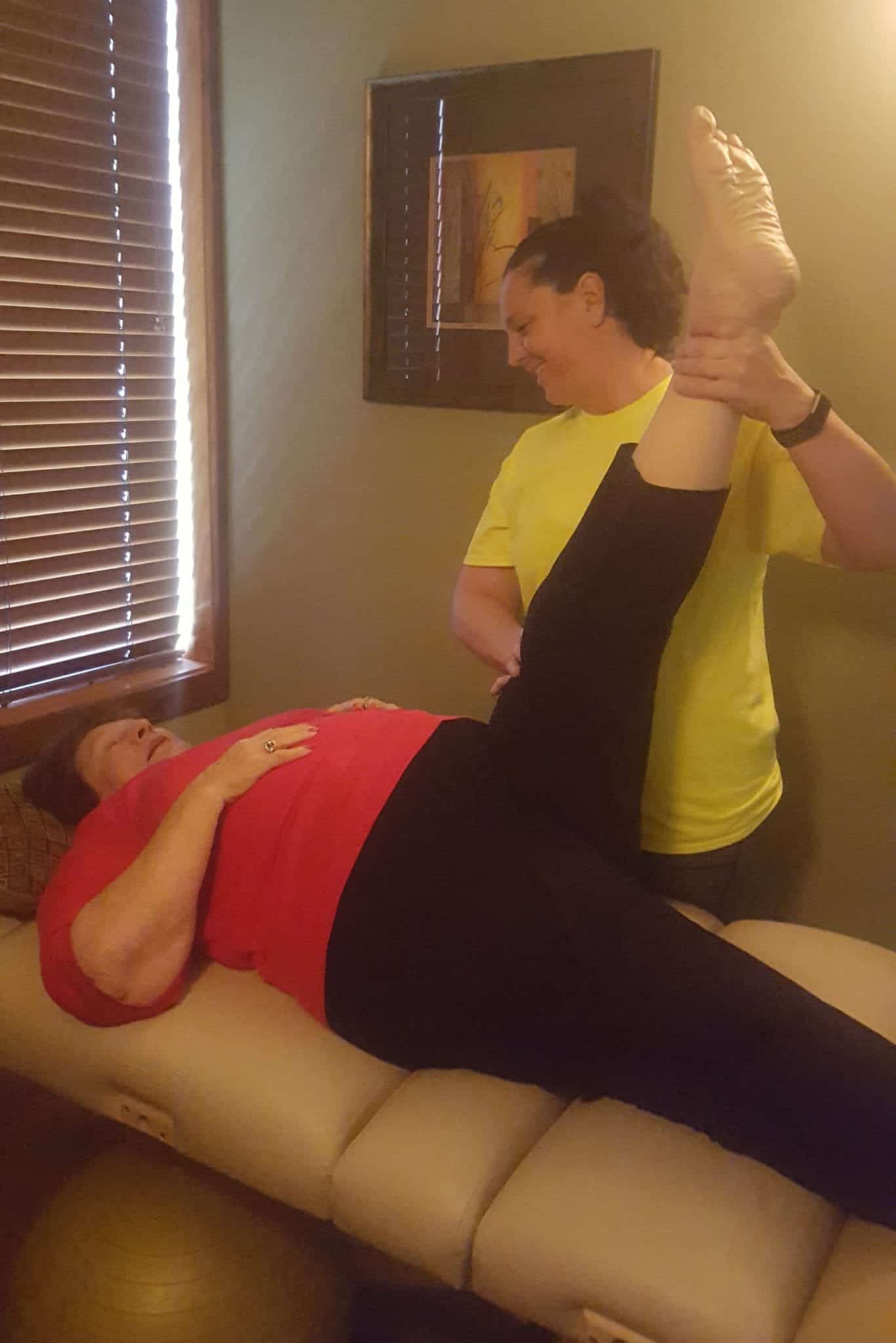 Further, she talks about using the DISC tool with one of her friends who she also trains. Crisa says, “we have been friends for a quite a long time and the way I was telling her how to do things came across totally different to her than how I meant them. It made me realize that I was doing this with other clients and it was really an ‘ah-ha’ moment for me that has really improved my training and my clients.”
Further, she talks about using the DISC tool with one of her friends who she also trains. Crisa says, “we have been friends for a quite a long time and the way I was telling her how to do things came across totally different to her than how I meant them. It made me realize that I was doing this with other clients and it was really an ‘ah-ha’ moment for me that has really improved my training and my clients.”
This holistic approach to athletic improvement and wellness resonates with both Crisa and Ryan personally. Crisa says her primary motivation for being an Exercise Physiologist was to help people.
She says, “I have always wanted to help people. Seeing how inactive people have become and how prevalent injuries are it made sense to use exercise as way to help people with current injuries and help prevent injuries.She adds, “we believe that medicine is a way to help people but without diet, exercise, and stress relief, the process is much longer and may not have as positive of an outcome. We have seen chronic problems fixed by exercise and diet and also injuries and surgery recovery time reduced because of preventative exercise and post exercise rehab.
Giving an example, Crisa who is a graduate of the University of Northern Colorado says, “one woman I was doing an evaluation on had chronic back pain for 10 plus years. I paused the evaluation and gave her some exercises to do and asked her to sit up and do a movement that created pain. She sat up and said, “I just did and it didn’t hurt!” Any time she sat down or stood up it was very painful to her and especially getting in and out of a car. She has been coming to me for probably a year and has not had problems with her back since. Healing people is very exciting to me! I also had another women who had a skin problem on her hands that left her hands looking as though they were burned. She had been to many doctors over the years and the last doctor told her that her only hope was continuous chemo! I asked her to take some things out of her diet and also meet with her medical doctor for allergy testing. Her hands have improved to almost normal and her life will not be left to chemo!”
Helping people is a recurrent theme when you talk to Crisa and Ryan. Ryan who has a bachelor’s degree in Health and Exercise Science from Colorado State University, explains why he got into exercise physiology and specifically, athlete development.
He says, “when my athletic career came to an end, I knew I wanted to stay involved in the sporting world. Growing up where I did in a small town, there were not any options outside of playing your sport to improve. My goal is to make sport specific athletic development available to any athlete who wants it.”
Logically then, it makes sense that Ryan is most excited by performance differences in his role as a trainer.
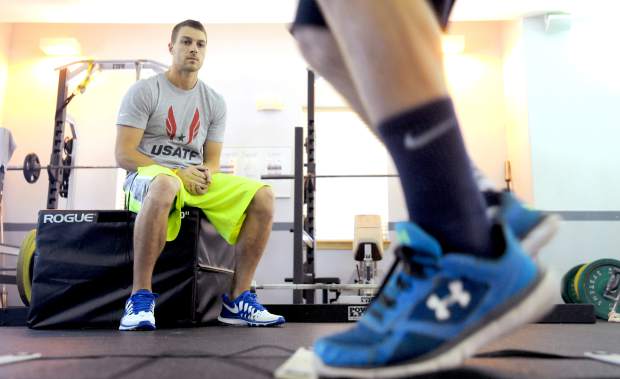
He says, “when I get to go to one of my athlete’s events, watch them win state championships, and watch them reach personal goals, I reflect back and it keeps me going. Seeing them sign college scholarships and reach their goals is my goal.”
Further, he says, “my (own) goal is to be able to reach as many athletes as possible in Northern Colorado, and to make every one of them reach their full potential. There is always room and time to train more people and help them get the most out of their sport.”
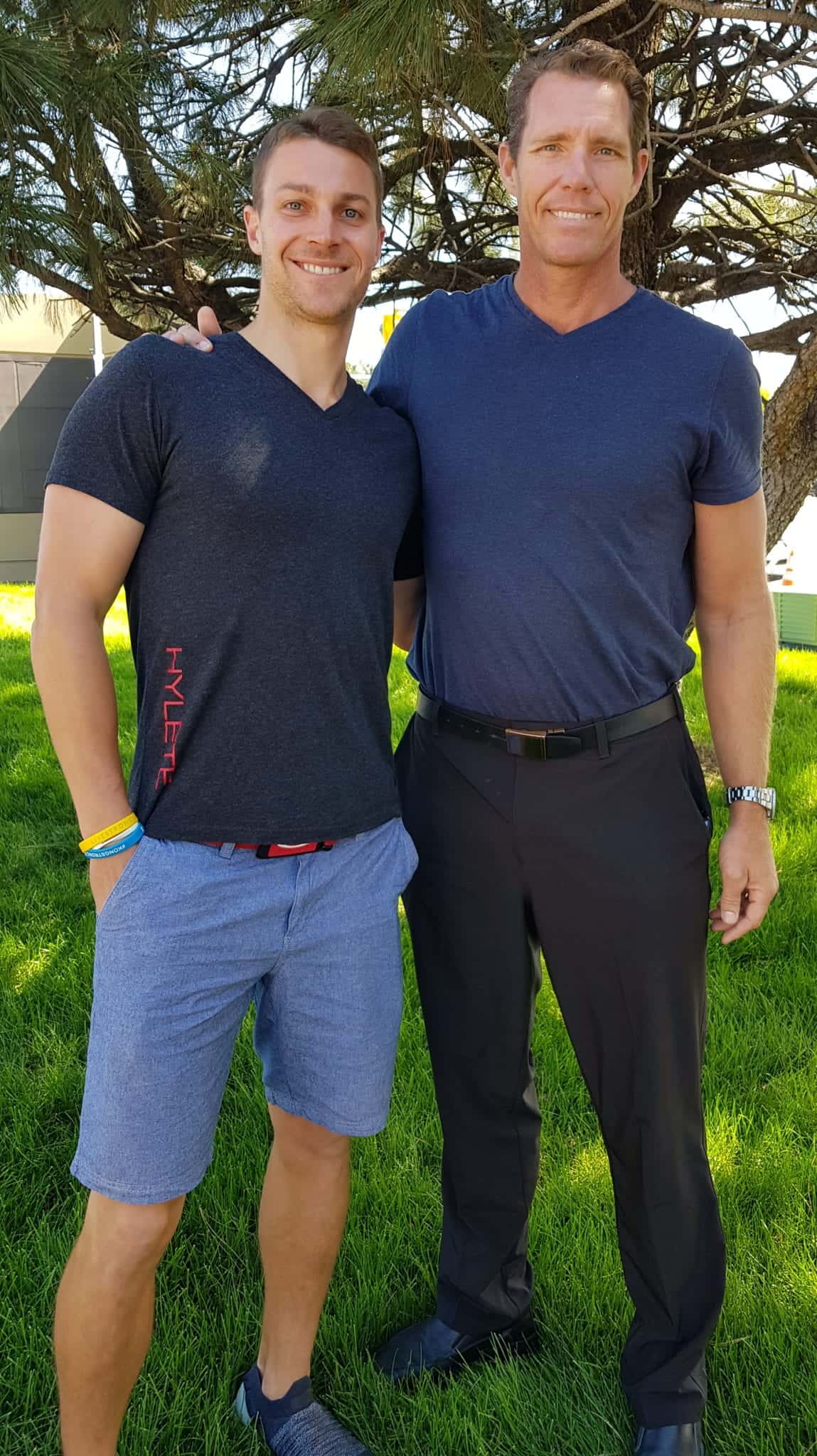 On the flip side he says, “it is not all glorious and easy. It (coaching) has its ups and downs, just like any career. Seeing an athlete work hard all year, then get injured in a game or practice is heartbreaking. The stress comes in a different form in that I don’t always get to control the outcome of my work, which can be hard to see.”
On the flip side he says, “it is not all glorious and easy. It (coaching) has its ups and downs, just like any career. Seeing an athlete work hard all year, then get injured in a game or practice is heartbreaking. The stress comes in a different form in that I don’t always get to control the outcome of my work, which can be hard to see.”
And, he has this valuable piece of advice for athletes, “enjoy this time while you can! You only get to play so long before someone tells you that you have to stop. Whether it’s a knee surgeon when you’re 28, or a college coach when you’re 18. Take time to enjoy where you are and battle every time you get to compete.”
Speaking of limited time, Ryan explains why time is the number one issue that his clients work to overcome. He says, “everyone is so busy, and so many athletes are involved in multiple sports. Making the time is so important, and the ones who put extra effort into making time to train are the ones who I always see succeed.”
It’s a simple fact, but such a powerful one. Crisa also sounds this simple reminder when she encourages other coaches to, “listen and learn from your clients because you will have better results.”
Where to from here…
Are you a trainer or consultant looking to achieve similar results with your clients? As a top professional, your clients rely on you being the best in your field, knowing the true determinants of success and having access to the tools that will make the most impact when it comes to improving performance. Athlete Assessments’ DISC Profiling is the tool you need to help your clients realize their potential.
Find out more about Athlete Assessments’ Consultant Program now.
At Athlete Assessments we’re here to provide you with excellence in service and to help you be your best. If there is anything we can do to be of service, don’t hesitate to contact us.
Suggested Articles
When we think CrossFit, gyms and performance coaching, most people immediately think physical, but Mental and Fitness Performance Coach, Jared Cohen, is achieving exceptional results using mental strategies in combination with physical improvement.
Mental Performance Coach, Dr Nicole Detling, is distinguished by her ability to cultivate exceptional progress in her athletes. Professionally, she was a fundamental part of Team USA’s incredibly successful campaigns at the 2010 Vancouver Olympics, 2014 Sochi Olympics and the 2018 Olympics in PyeongChang. She worked with the US Speed Skating and Freestyle Aerial Ski Teams as well as the Snowboarding team for PyeongChang. Over 2 decades she’s developed a unique insight into the pressures associated with Olympic performance, how to work through them and lay the foundations for success.
One of the biggest misconceptions when it comes to Sport Psychology is that an athlete needs to have deficits in their mental game before they can seek support. But Sport Psychologist, Dr. Justin Anderson works with some of the world's best athletes who just want to “be better”.
There are instances in sport when a coach will experience a significant break-through with an athlete, or an intense moment of satisfaction when something goes exceptionally well. We describe these instances as “coaching moments”. And although they are often fleeting, they are also treasured, and what makes the hard work and dedication worthwhile. For many coaches, it is what they love most about their role.
For consultants, it isn’t all that different. There are still those special moments when it all comes together and the dedication to the role delivers a “life changing” experience for the client. Performance Consultant Patrick Rufo recently shared one of these very moments with us.


